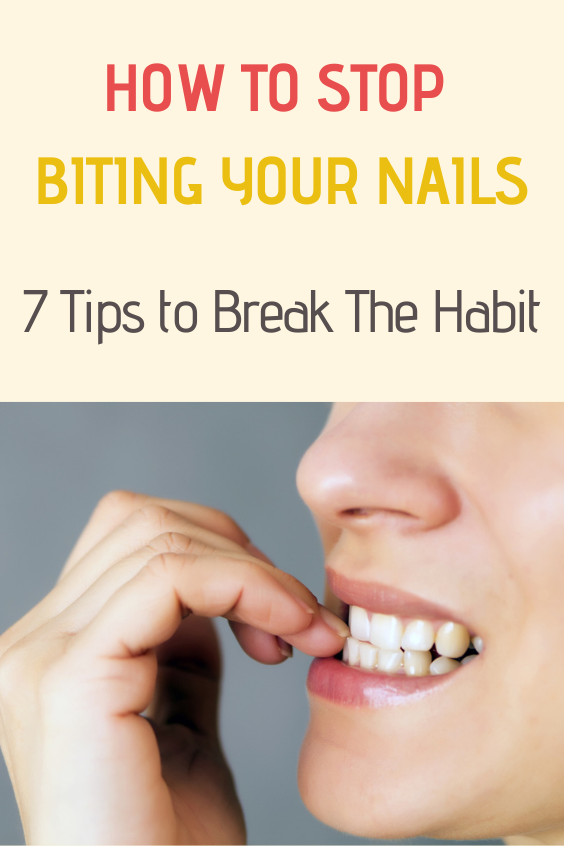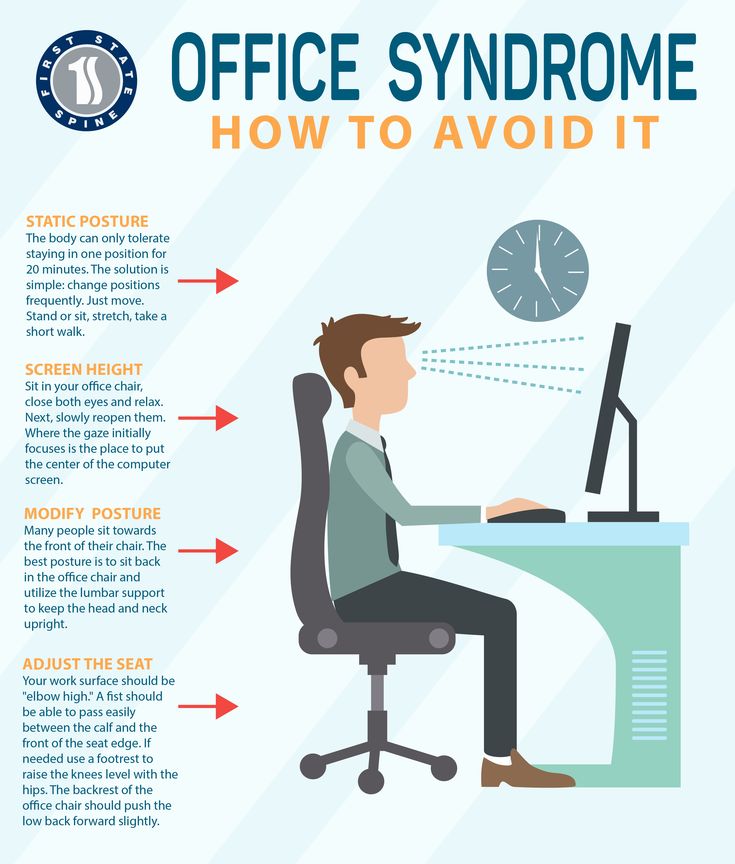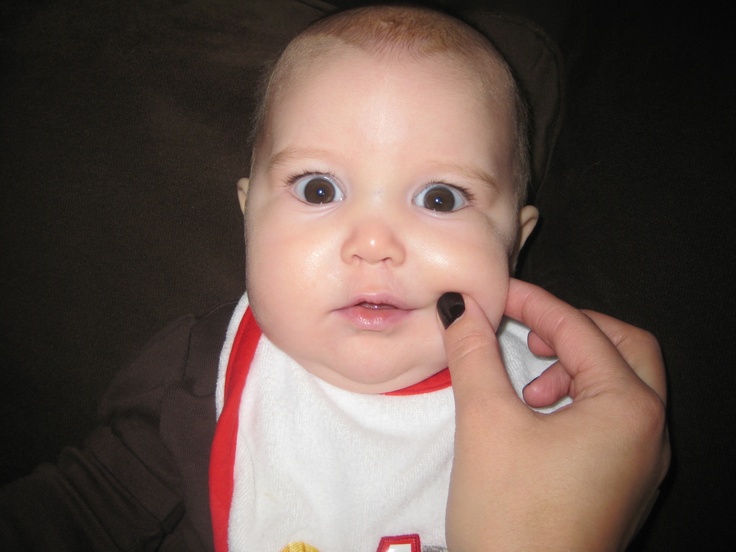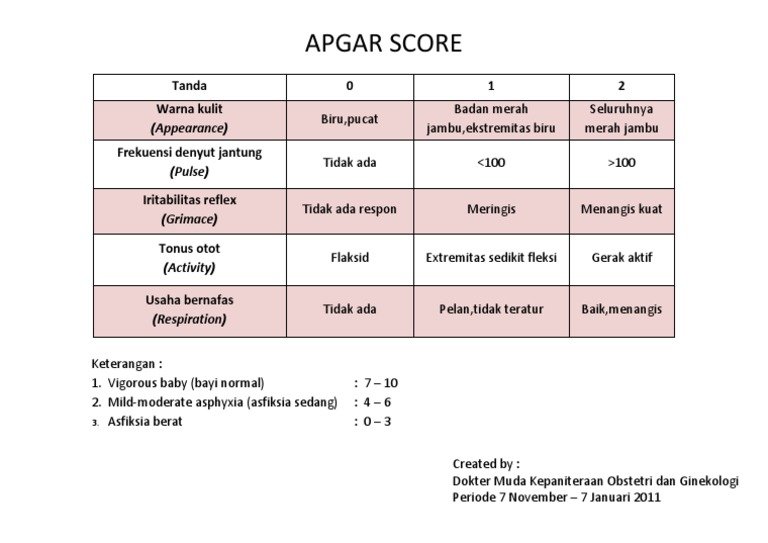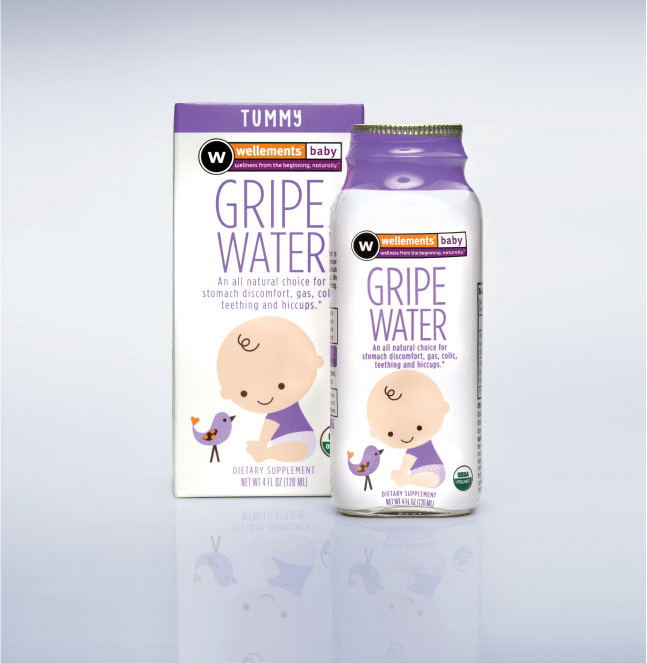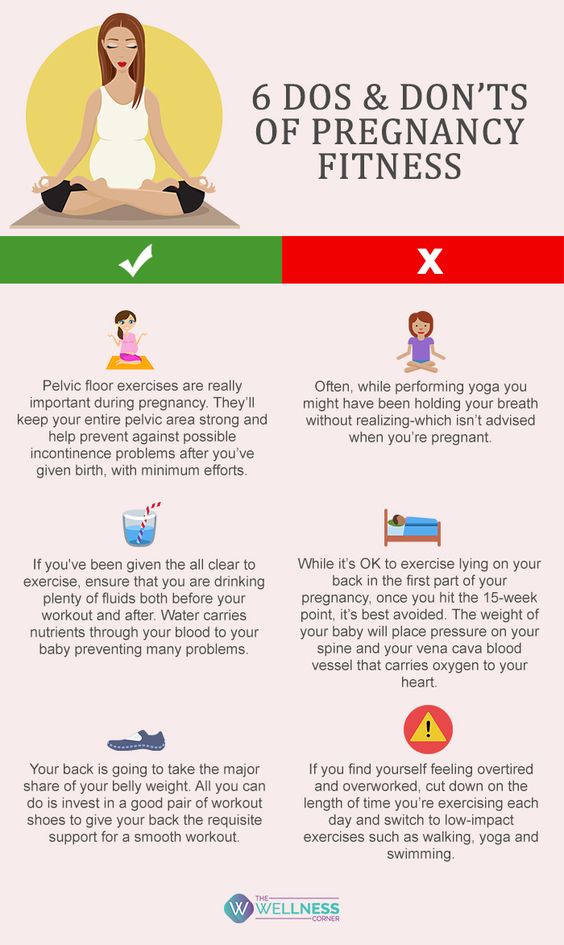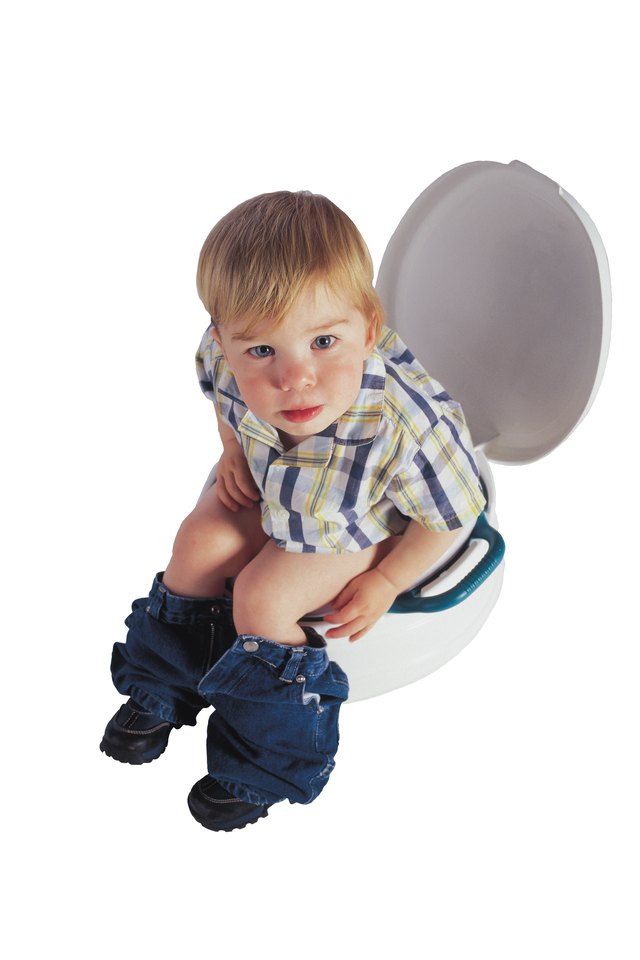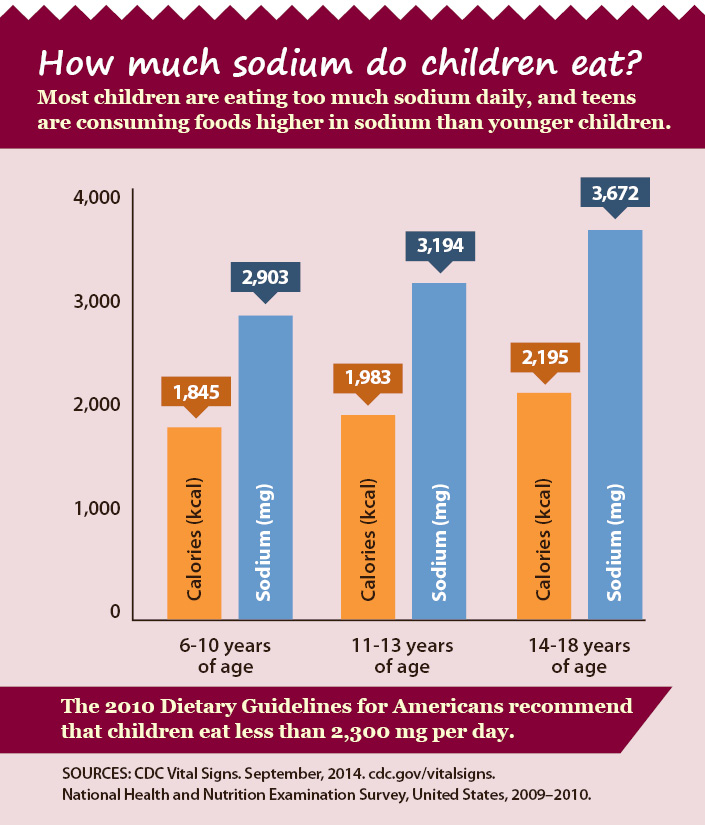How to stop biting nails child
Causes, When to Worry, How to Stop It
Nail biting is one of those habits that toddlers sometimes develop. It can be unsightly, annoying (to you!), and even problematic for their health. But like thumb sucking, it usually goes away on its own with time.
But what if it doesn’t? We all probably know people our own age who bite their nails, too. So here are some tips for nipping the habit in the bud — or nail — early.
An estimated 30 to 60 percent of kids and teens bite their nails, so your child isn’t alone. So what causes it?
Some research shows that nail biting may have genetic factors. Also, your toddler could be biting their nails because of the attention (albeit negative) they garner when you insist they stop.
However, most experts pin down nail biting to habit — a repeated behavior that your child isn’t even aware of. Habits develop for three main reasons:
- Boredom. A bored child may start nibbling at their nails because there isn’t anything more pressing to do.
- Relief. Nail biting may be a response to stress. (Sort of like reaching for chocolate.)
- Relaxant. Some kids suck their thumbs to help them fall asleep, while others bite their nails.
Often habits simply wear themselves out and disappear. So usually, there’s no need to worry.
As for the dangers of nail biting itself, they definitely make it worth kicking the habit. Biting your nails can not only cause minor annoyances like hangnails, which may not seem minor at all to your tot, but also lead to infections and tooth problems.
Stopping any habit requires a hefty dose of self-control. When you’re dealing with a toddler who bites their nails, you’ll need double the amount of self-control — yours plus theirs. Here are seven strategies to help.
1. Make sure your child is on board
Your child can’t stop a habit if they don’t know they’re doing it. Plus, they need to be motivated to want to stop biting their nails.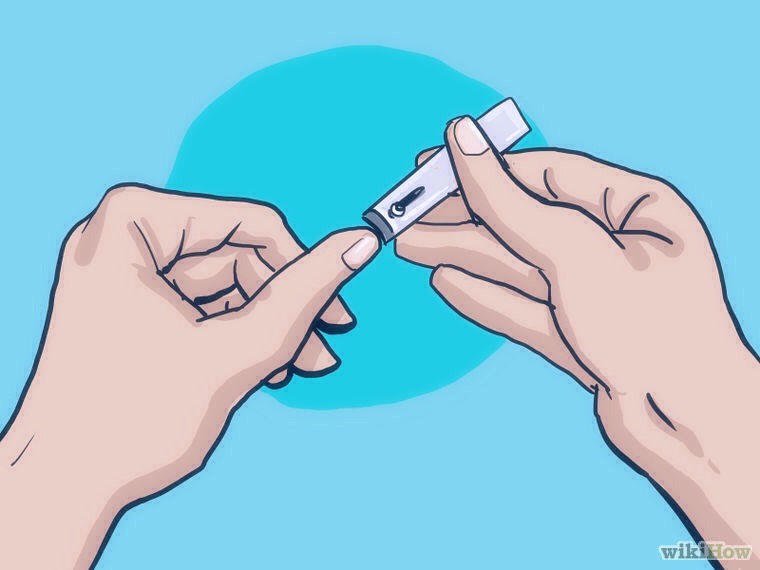
The first step is to make sure you’re a team. Help your child understand that nail biting is a habit that’s worth stopping, especially since it can cause infections and problems with your teeth. You can also talk about hygiene and touching things with fingers that have been in your mouth.
2. Cut nails short
Your toddler can’t bite what isn’t there, so keep their nails well trimmed. This also ensures that bacteria and dirt caught under the nails don’t get into your toddler’s system.
3. Create a code
This may make it fun and even, well, downright conspiratorial to your toddler.
Instead of telling your child to stop nail biting, choose a secret code that you can use to remind them to stop. Options include a specific word that you say, a touch on the shoulder, or a whistle.
4. Suggest substitutes
Help your child keep their hands busy with other things. Offer them rubber balls, Silly Putty, or even a piece of soft fabric to hold.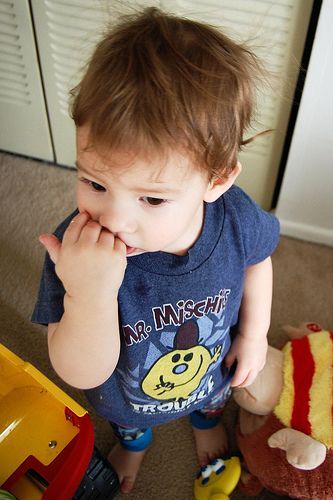 This may work especially well if they bite their nails due to stress or anxiety.
This may work especially well if they bite their nails due to stress or anxiety.
5. Use a reward system
Offer your child a small prize or put a star on a sticker chart for each day they don’t bite their nails. At the end of the week, they get to choose a prize. (For toddlers, this doesn’t need to be big. In fact, a sticker — or, if they’re into it, a fun nail-painting session — may be reward enough.)
6. Mention fun boredom-busting activities
If your tot bites their nails out of frequent boredom, suggest new activities. Coloring books, blank drawing pads, pretend play, pillow forts — these all serve the double purpose of fostering creativity and leaving little room for nail biting.
While you shouldn’t feel guilty about encouraging independent play, you can also distract your child from the habit by taking them to the park, working on a puzzle together, or cooking or baking together.
7. Apply bite-averting nail polish
This might be an option of last resort.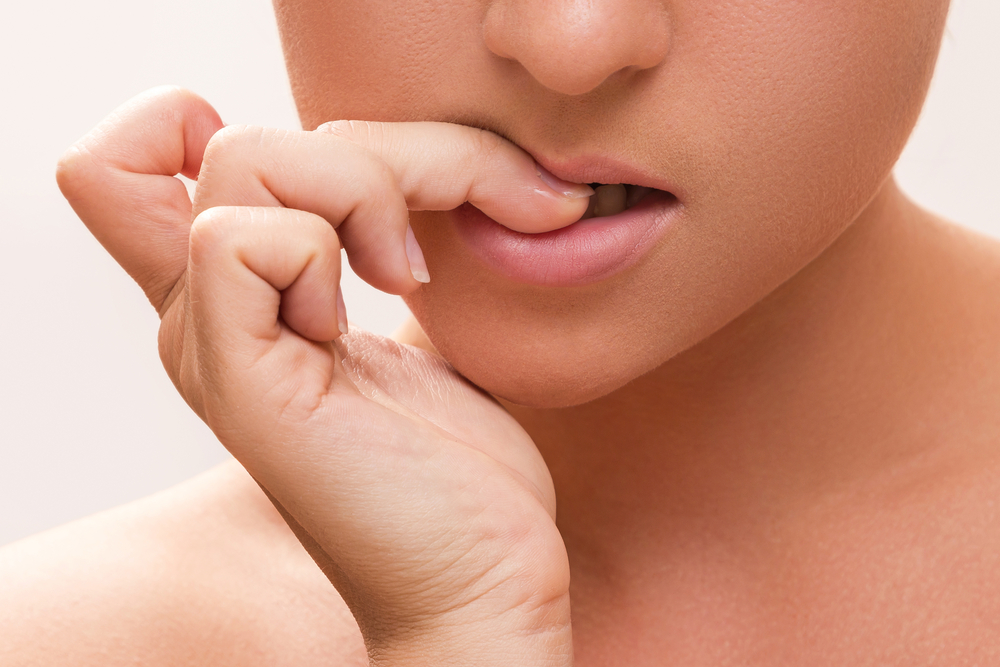 And before you use this, make sure your toddler knows what it means.
And before you use this, make sure your toddler knows what it means.
The burning taste takes the thrill out of nail biting and makes your child more conscious of the habit. The downside is that your child gets a taste of the nail polish even when they’re putting their hands in their mouth for other reasons — like eating finger foods.
On the bad days when your toddler seems to be biting their nails nonstop, you might be tempted to do something that could make things worse.
Endless reprimands, long lectures, yelling, and punishments won’t encourage your child to stop biting their nails. In fact, the negative attention may just make your child more determined to show you who’s the boss of those nails.
Between the ages of 2 and 3 years old, your toddler is at the developmental stage of autonomy versus shame or doubt. At this me-do-it stage, your child is working toward independence. Toddlers who aren’t given the opportunity to behave with age-appropriate independence could begin to doubt their abilities, and this could lead to low self-esteem and feelings of shame.
Sometimes, nail biting could negatively affect your child’s social relationships or interfere with their daily functioning. You’ll notice this happening if your child complains that other children are teasing them about their bitten nails.
Nail biting can also have physical ramifications. It can lead to painful ingrown nails or nail infections caused by bacteria that have entered the damaged skin around the nail.
More rarely, chronic nail biters (usually adolescents) can damage their nail beds and teeth. This is called onychophagia. Research shows that it can be treated using oral devices to help break the habit.
A toddler who adds habits to their repertoire (hair twisting, thumb sucking, nose picking) may be signaling that they’re anxious about something. By spending one-on-one time with your child, you’ll build up a strong parent-child relationship that will help them share what’s going on in their world.
While your child will likely outgrow their nail-biting habit eventually, you can try to help them stop early.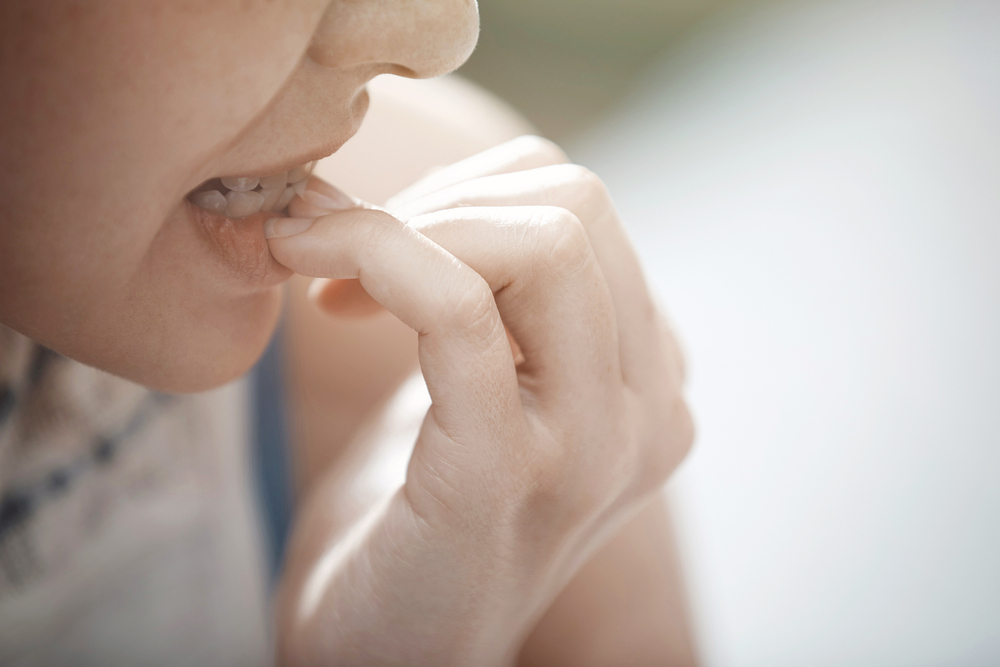 This involves good communication, positive reinforcement, and patience — from both of you.
This involves good communication, positive reinforcement, and patience — from both of you.
If you’re concerned about how your kiddo’s habit is affecting their health or social relationships, speak with their pediatrician.
7 ways to stop the nail biting habit in children
Listen to this article |
A lot of people bite their nails. Despite it’s pretty gross, it is challenging to get rid of. Especially if kids exhibit this habit. Nail biting in children may seem harmless, but it can damage the surrounding tissue and the cuticle. In fact, your child may also experience some pain and have abnormal looking nails, which can even result in fungal infections. And if you don’t take action to discourage kids from chewing their nails, this habit can outgrow with age.
Nail biting is mostly unconscious and can be stopped. Health Shots got in touch with Dr Vrushali Bichkar, Consultant Paediatrician and Neonatologist, Motherhood Hospital, Lullanagar, Pune, who shared some of the best ways to stop children biting their nails. Before the solution, let’s read about what causes nail biting in children.
Before the solution, let’s read about what causes nail biting in children.
3 causes of nail biting in children:
1. Out of boredom
Did you know if your child is bored, then he or she can start biting nails as there is nothing else to do. Slowly, the child will do it on a regular basis, and this habit is unhealthy. Parents should discourage their children from doing so.
2. To get that much-needed relief
Nail biting may be due to any kind of stress (when parents refuse to get a toy or chocolate).
3. To fall asleep
There are many kids who bite their nails instead of sucking their thumbs to fall asleep. But kids should not be allowed to bite their nails.
7 tips to stop children’s nail biting habit:
1. Make them aware of the bad habit
If your child is old enough, say between the age of 5 and 6, and they have a habit of chewing their nails, gently explain to them that this is a bad habit.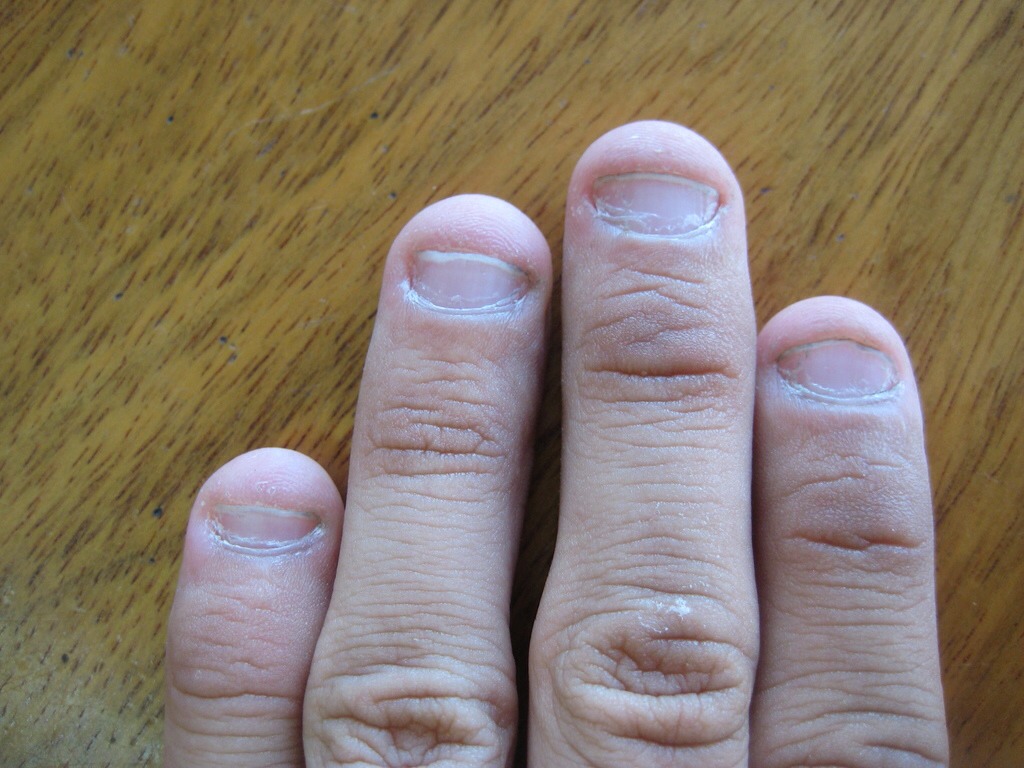 To let them know and put an end to their habit, give them a touch on the shoulder or use a secret code that only the two of you know. This will assist in kicking the habit.
To let them know and put an end to their habit, give them a touch on the shoulder or use a secret code that only the two of you know. This will assist in kicking the habit.
2. Trim his or her nails
Your toddler can’t bite nails when they are trimmed. So, try to keep the nails short. This will make sure that the bacteria and dirt under the nails don’t get into your toddler’s body and lead to many health issues.
3. Clam down the child
If your child bites nails more often due to stress, then offer them a rubber ball, or even a piece of soft fabric to hold to avoid nail biting. Apart from this, talk to your child and try to find the source of stress.
4. Find a substitute
Whenever you see your children biting their nails, offer an alternative. An alternative can be foods that are healthy. You can also help them indulge in any indoor or outdoor activities so that their hands will get busy with other good options.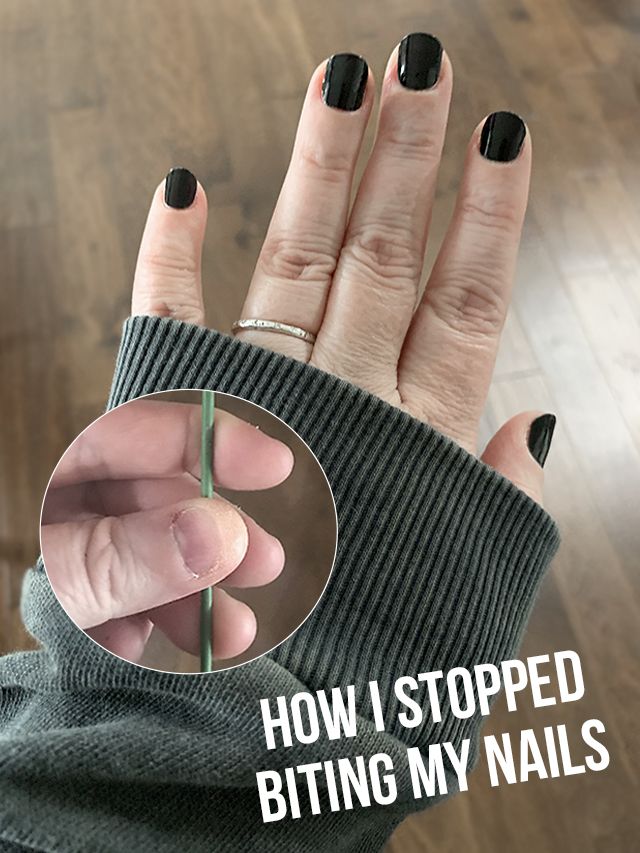
5. Reward your child
Reward him/her for not biting their nails. This will be helpful in motivating them to keep them away from that bad habit.
6. Shift your children’s attention
Just shift the child’s attention from colouring, playing games, or dancing when the child is bored instead of nail biting. Encourage the child to take up a new activity or learn a new skill. Keep the children engaged.
Indulge in games and activities with your kid. Image courtesy: Shutterstock7. Get support
If you haven’t yet figured out how to stop your child from biting their nails, let your child’s nursery or school also know what they are doing at home. Your child will immediately remember not to bite their nails while you are not around if you do this.
Most parents relish employing strategies like using nail paint with a bitter taste. If your child is not at ease with it, don’t try it. Your kids could believe they are being punished as a result. In fact, your kids may find it challenging to eat some foods due to the foul taste and odor of nail paint.
How to wean a child from biting his nails
May 15LikbezLife
Stock up on patience - you will need it.
Iya Zorina
Author of Lifehacker, athlete, CCM
Share
0 You can listen to the short version of the article. If it's more convenient for you, turn on the podcast.
Why a child starts to bite his nails
The habit of biting nails, or onychophagia, is a fairly common phenomenon that affects 20-30% of people. It can occur at the age of 3-4 years and accompany the child until puberty and even beyond.
Scientists do not know exactly what this habit is connected with. Some believe that it can arise from stress, for example, due to problems in the family. Others find no connection with anxiety and argue that boredom and frustration are the cause.
One study also found a link between bad habit and hyperactivity: 74% of children with this disorder periodically bit their nails.
Of course, this does not indicate a disorder, but if other signs of attention deficit hyperactivity disorder (ADHD) are present, it may be a clue that it is time to visit a child therapist.
At the same time, onychophagia may not have any connection with disorders, increased anxiety or an unhealthy climate in the family. Often this is just a compulsive action that a person performs unconsciously.
Is it necessary to wean a child from biting his nails
Without a doubt, this habit is worth fighting. Onychophagia can lead to the following problems:
- Progressive shortening of the nail plate and damage to the nail bed.
- Paronychia is an inflammation of the soft tissues around the nail.
- Periungual warts from papilloma virus transmission.
- Growth of Enterobacteriaceae in the mouth, risk of transmission of pathogens such as E. coli and Salmonella.
- Problems with the oral cavity: notches on the teeth, resorption (reduction) of the root of the tooth, gingivitis (inflammation of the gums), the formation of malocclusion.

Moreover, nail biting can cause disapproval and ridicule from adults and peers, which will negatively affect the child's self-esteem.
Methods to try
There are several ways to break a bad habit.
Coating nails with a bitter substance
This method is quite popular and, according to research, gives good results.
Try using olive oil - it will provide not the most pleasant sensation when trying to bite your nails and at the same time will not harm the health of the child.
Special products are also sold, such as bitter cactus extract, that will last long on nails, won't stain clothes, and provide a bitter, unpleasant taste.
When using this method, it is very important not to present it as a punishment. Before putting any substance on your nails, talk to your child:
- Discuss how bad this habit is. Tell us about the possible harm to nails and teeth, the risk of harmful bacteria getting into your mouth.
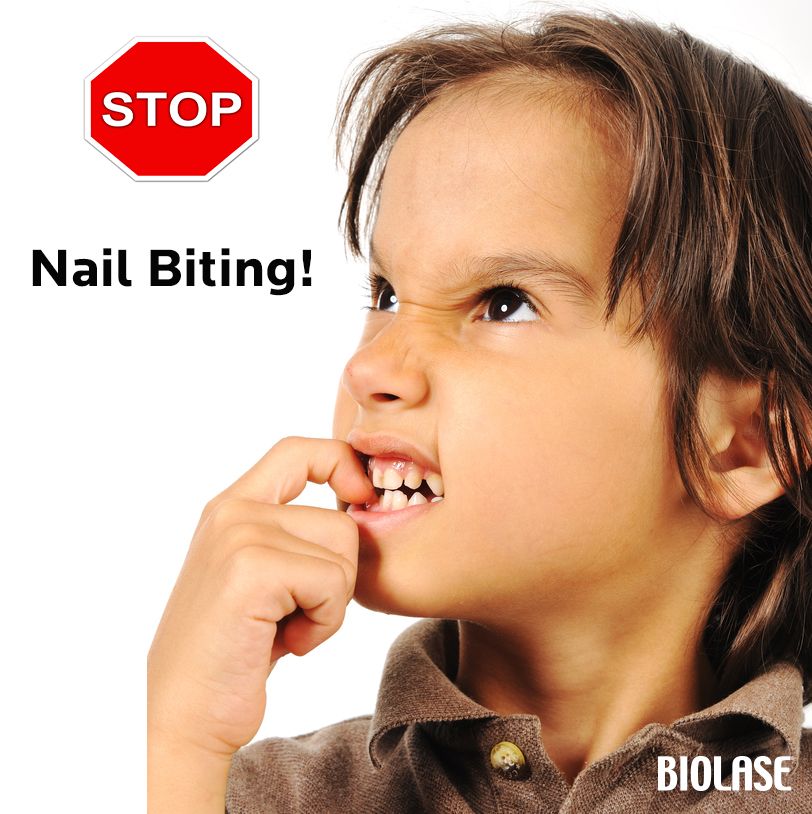
- Explain that the method will help to cope with automatic actions and will not harm.
- Promise a reward if the child stays free of the bad habit for 1-2 weeks.
Comprehensive work on the habit
This method is suitable for older children from school age. It will require much more time and effort, but in the long run it will provide better results than simply smearing the nails with a bitter remedy.
The method includes three types of intervention:
1. Development of awareness . Explain to your child the importance of noticing when he starts biting his nails. If he is old enough to take notes, ask him to keep a habit diary and write down all the cases: when and under what circumstances he found himself doing it again, what happened before and after, what emotions he had at that moment. This way you can track what is the trigger of the habit and help your child get rid of automatic unconscious actions.
2. Replace . Come up with an action that can replace nail biting. For example, this might be squeezing a small toy or twisting a pencil in your fingers. Explain to the child that this will need to be done every time he notices that he is biting his nails or feels the urge to do so.
Replace . Come up with an action that can replace nail biting. For example, this might be squeezing a small toy or twisting a pencil in your fingers. Explain to the child that this will need to be done every time he notices that he is biting his nails or feels the urge to do so.
3. Social support . Praise your child for success, support his desire to get rid of a bad habit.
You should immediately tune in to long-term work and warn everyone involved about it. It may take weeks to change a habit, but the skills acquired in the process can be useful to the child later in life.
Building positive habits
This method goes well with the previous one and is more about the general condition of the child than the specific impact on the habit.
Since lack of physical activity and psychological stress can be the cause of onychophagia, it is advised to accustom the child to useful activities.
Try enrolling him in a sports or dance class. This will make up for the lack of activity, help develop self-confidence and improve communication with peers.
This will make up for the lack of activity, help develop self-confidence and improve communication with peers.
Alternatively, offer to draw or sculpt, learn some musical instrument. This will help to keep your hands busy and relieve stress, open up opportunities for self-expression.
Positive reinforcement
You can turn breaking a bad habit into an exciting game with a prize at the end. To begin with, be sure to explain to the child why it is necessary to stop biting nails, and promise to help him with this.
Then set the rules: how many days he will need to stay without a bad habit to get the coveted prize. For each successful day, you can give out colored stickers or stickers, make notes on the wall calendar.
You can come up with several levels of difficulty - three days, a week, two weeks, a month - and distribute rewards with increasing value. As a prize, you can use goodies, small gifts, or some kind of event like visiting a trampoline center, an amusement park.
If a child cannot stand it, do not scold him or shame him. On the contrary, console and support his desire to last as long as necessary next time.
Which methods cannot be used
The authors of all scientific works agree on one thing: punishments, shouting, attempts to shame and ridicule a child for a bad habit do not work. Such psychological attacks provide additional stress, can cause feelings of helplessness, anxiety and hopelessness, and reduce self-esteem.
Try not to scold the child and not be ashamed of his bad habit in front of other people. Explain to other relatives, including siblings, the importance of avoiding judgment and ridicule.
Read also 🧐
- Should genes be blamed for bad habits
- How to wean a child from night feeding
- How to wean a child from a pacifier
- How to wean a child from sleeping with parents
- 10 best ways to overcome bad habits
Easy ways to stop your child from biting his nails
According to statistics, about 30% of children have a habit of constantly biting their nails.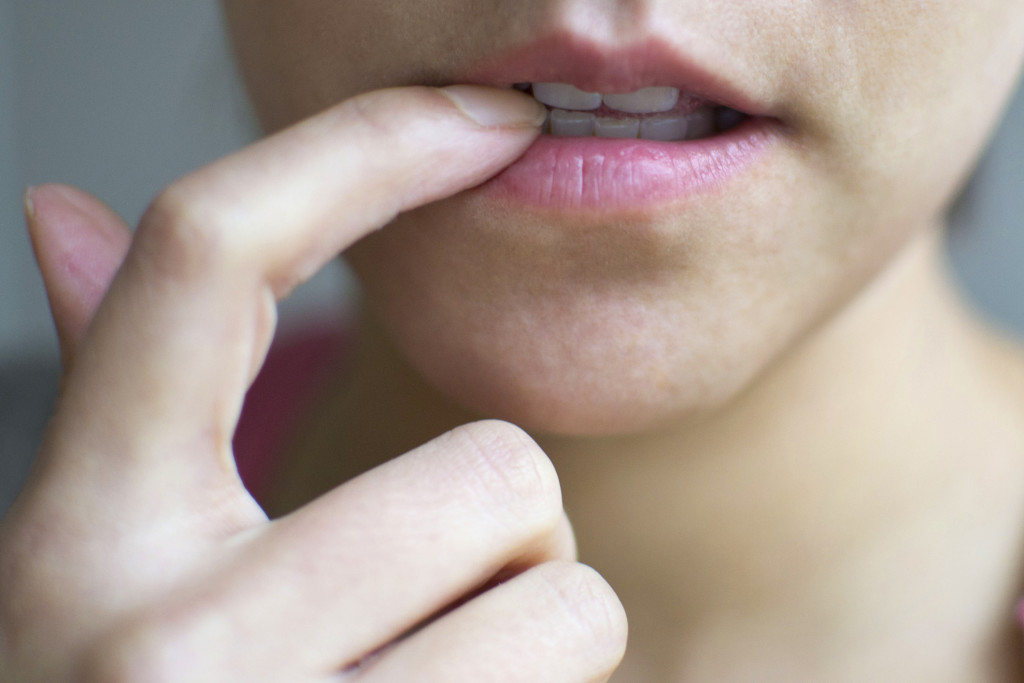 Outwardly, it does not look very nice. However, during adolescence, almost half of the boys and girls are exposed to such harmful behavior. If we talk about the adult part of the population, then about 25% of men and women continue to bite their nails. Agree - it looks not that unattractive, but even very repulsive. Unfortunately, it is almost impossible to cope with this problem in adulthood, which means that it is desirable to start the fight against such a bad habit as early as possible - from early childhood.
Outwardly, it does not look very nice. However, during adolescence, almost half of the boys and girls are exposed to such harmful behavior. If we talk about the adult part of the population, then about 25% of men and women continue to bite their nails. Agree - it looks not that unattractive, but even very repulsive. Unfortunately, it is almost impossible to cope with this problem in adulthood, which means that it is desirable to start the fight against such a bad habit as early as possible - from early childhood.
Reasons why children bite their nails
Medical science calls this addiction onychophagy, while boys are more prone to the persistent desire to bite their nails. Most often, the violation in question is of a psychological nature and is by no means a flaw in the upbringing of parents. To understand why a child bites his nails, one should consider the motives associated with physiology and psychological and social orientation. In the first case, the following should be noted:
- neurotic tendencies and other problems of the central nervous system;
- malnutrition leading to vitamin deficiency;
- diseases of the cardiovascular system;
- the presence of parasites in the body;
- early weaning or teat;
- irregular hygiene procedures.
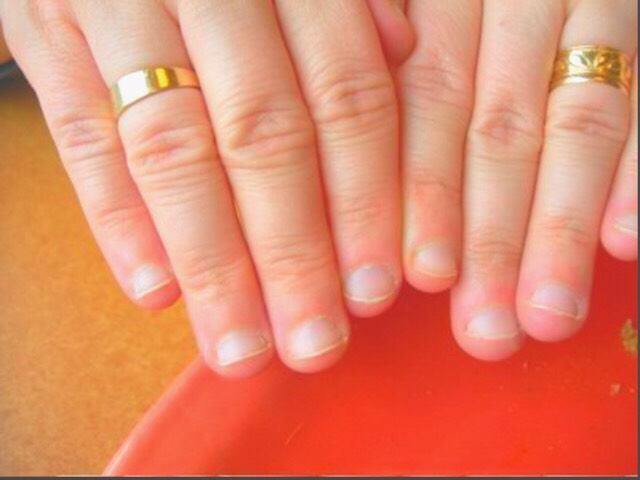
If we talk about violations of a socio-psychological nature, then in this case the reasons will be the following:
- psychological trauma and stress due to the sweat of close relatives and so on;
- severe fright;
- tense relationship between parents;
- abrupt change of scenery;
- great psychological stress and excessively increased demands on the part of adults to the baby;
- poor employment of the child - then nails bite simply because of boredom;
- a bad example from relatives and friends;
- sleep disorders;
- low self-esteem.
Age characteristics of this habit
Experts do not note clear age parameters that determine when children begin to bite their nails. This can happen both at 3 years old and at 10 years old. It all depends on why he started doing it. And if older guys at least sometimes try to control this process, then for little crumbs this is an impossible task.
However, it should be noted that most often the problem begins to appear at about 5-6 years of age. It is at this age that the baby goes to preparatory courses or goes to school. A child who until that time played on the playground, went to kindergarten, had fun with friends or rested in the village with his grandmother, now must sit motionless for 30-40 minutes in one place.
Such a load - both psychological and physical - is a real stress for his body, and therefore the baby tries to express his protest in some way. In addition, the habit of biting nails becomes a kind of protective barrier against anxiety.
Do not scold or punish your child
If you notice that your child is biting his nails, in no case show aggression, showing how much you do not like it. Roughly pulling and slapping his bail, you will not solve this problem. And at the same time, the baby himself will very quickly understand that this cannot be done with his parents, but alone, when no one sees, it is very possible.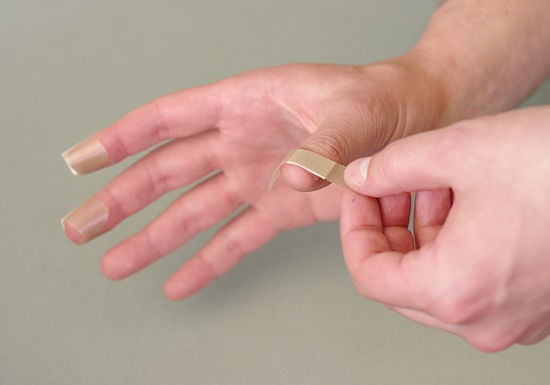
The most important thing in this case is to try to find out as early as possible the reason why your child constantly bites his nails, and then act in accordance with the recommendations of specialists.
Why nail biting is harmful
When children bite their nails, it is advisable to tell them in an accessible way what harm this habit causes them. They must understand that the parents' prohibitions on this matter are not their whim, but their concern for the health of their child and the desire to help solve this problem.
Why is nail biting bad? The reasons are quite simple:
- different bacteria and microbes live under them, and each time this cheerful fraternity moves into the body after the finger is in the mouth;
- biting off the nail damages the enamel of the tooth and may even move the jaw;
- biting off the nail plate can scratch the mucous membrane inside the mouth, which leads to staphylococcal infections;
- destruction of the nail bed occurs - the plate gradually shortens and over time can turn into a small protruding stump;
- there may be scratches and bruises in the corners of the nails, which also quickly become infected;
- damages the cuticle, which is the protective barrier to nail health.

It must be remembered that parents must communicate sincerely with their child in order to help them find a way out of a difficult situation. Toddlers should try to switch to other activities or games. Tell us that each finger is a kind of friend that helps to write, fold the constructor, and eat. You can't hurt your friends. Only the joint efforts of the child and parents will help get rid of this addiction.
How to wean a child from biting his nails
Often, parents who notice such a tendency turn to doctors with the question of how to wean their child from biting their nails. How to act correctly and what to do at the same time, you will be helped by the advice of psychologists, the essence of which is summarized below:
- Tell him a tale about two heroes, one of whom bites his nails, and the second does not. Come up with a plot according to which no one wanted to be friends with a slut, and a neat boy had many comrades.
- Teach your baby to show his emotions in words, which will enable him to splash out energy correctly.

- Involve him in drawing, dancing, walking - try to make the most of your free time with useful leisure.
- Try to protect him from tablets, computers, smartphones - devices that significantly increase nervous tension.
- Stimulate his desire to engage in active pastime - sign up for football, gymnastics, dancing. But at the same time, do not forget about the correct distribution of the load.
- Instill the habit of taking care of yourself - remove burrs with little ones with scissors and nail files, and book teenagers in the salon for a manicure.
- If another "attack" of onygophagia occurs, try to distract the child with a fairy tale, a game, take him for a walk.
- Be patient, do not show aggression, hug your baby more often, talk to him about his affairs - so he can distract himself from the desire to bite his nails.
- Purchase a children's construction set with small parts. An ideal option would be a toy with metal parts that are interconnected with nuts and bolts.
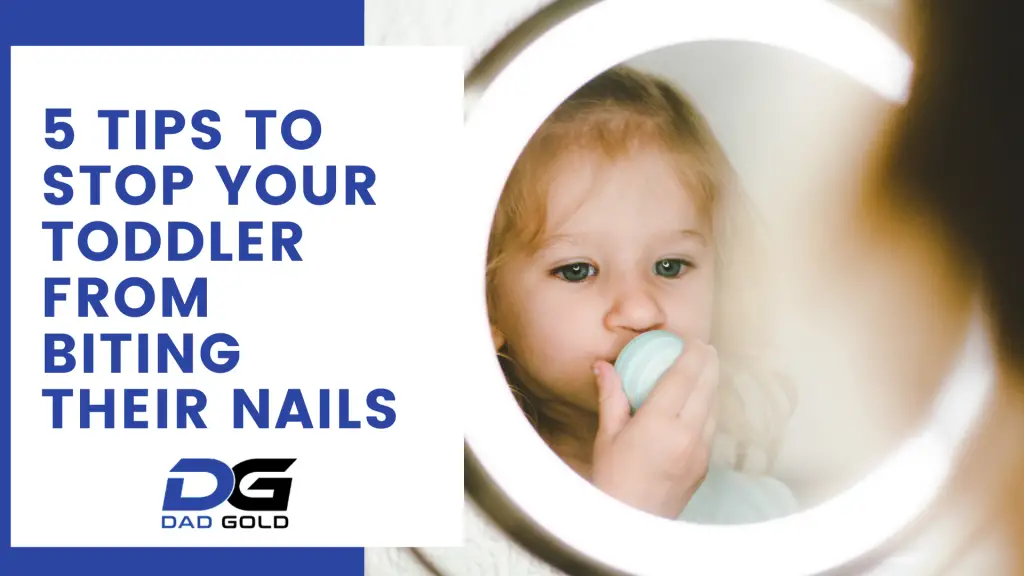 Such a game very well calms the nervous system and removes all internal negativity.
Such a game very well calms the nervous system and removes all internal negativity. - Appliqué, modeling with plasticine or polymer clay are also useful.
As for special products, in this case, you can use the use of vitamin-mineral complexes that improve the general condition of the nail plate. Vitamins of group B and baths with natural vegetable oils (for example, with cedar oil) have a good effect. You can also buy specialized varnishes such as "Nekusayka" or "Do not bite", designed specifically for children.
Folk remedies
You shouldn't ignore the advice of your ancestors, as our grandmothers knew very well how to overcome the bad habit of children to bite their nails. Not all modern mothers will use them for various reasons, but, nevertheless, it is worth mentioning them:
- Applying “natural” bitterness to the fingers - pepper, agave juice, mustard. Just like Nebite lacquer, they can discourage babies from putting their hands in their mouths.
